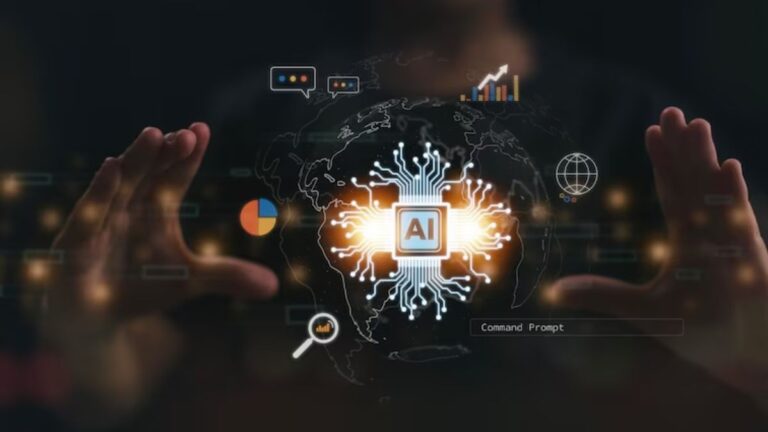Kirankumar Kulkarni
artificial intelligence

AI and Digital Marketing
Until recently, marketers were hesitant to incorporate AI into their digital marketing strategies. But this trend is slowly reversing as AI's more subtle benefits become clear: In a survey of 1,600 marketing professionals, 61% said AI would be their most important data initiative in the coming years.
A notable example of the use of AI in digital marketing is Amazon.
AI-based digital marketing strategies are revolutionizing the way marketers interact with their audience. With its specialized capabilities, AI can drive relevant traffic, acquire new customers, increase sales, and retain existing ones.
Let’s explore the various benefits and options that AI offers and analyze how you can integrate these into your digital marketing strategy.
A/B Testing: The Foundation of Digital Marketing Optimization
A/B testing has long been a staple of digital marketing. This method compares two versions of a web page or ad to see which one performs better. Traditional A/B testing requires manual traffic switching, where marketers allocate a percentage of traffic to each version. This process is time-consuming and often lacks the flexibility to adapt in real time.
The emergence of the multi-armed bandit
Multi-armed bandit (MAB) algorithms are transforming A/B testing by incorporating real-time decision-making capabilities. Inspired by the problem of allocating resources among competing options to maximize rewards, MAB algorithms use reinforcement learning to dynamically adjust traffic allocation based on real-time performance. Techniques such as Thompson sampling enable these algorithms to continuously learn and adapt, ensuring the best-performing variants receive the most exposure.
For example, a retailer launching a new marketing campaign can use MAB to test different ad creatives. Instead of waiting weeks for enough data to be collected, the MAB algorithm quickly identifies the most effective ad and instantly optimizes the campaign by directing more traffic to that ad. This automated traffic switching is not only efficient, it also maximizes return on investment (ROI).
Search Engine Marketing: Powered by AI
Search engine marketing (SEM) is another area where AI is making great strides. In SEM, marketers bid on keywords to show their ads in search engine results. Traditionally, marketers set bids and keywords manually, which was a laborious and inaccurate process.
AI-driven SEM tools can analyze vast amounts of data to identify the most effective keywords and adjust bids in real time. These tools optimize ad placement by taking into account factors such as competition, search volume, and user behavior. For example, an AI tool could detect that a particular keyword is growing in popularity and raise the bid to make your ad more visible. This level of precision and adaptability was previously unattainable with manual methods.
Personalized Landing Pages: The Future of User Engagement
Personalization is essential to increase user engagement and conversion rates. With AI, you can create customized landing pages for individual user profiles. When a user logs in and performs a search, the system analyzes their behavior, preferences, and past interactions to present them with a customized landing page.
Consider online travel
Click-Through Rate: A Metric Reinvented by AI
Click-through rate (CTR) is a key digital marketing metric that indicates the effectiveness of an ad or landing page. AI can analyze CTR data to uncover insights and optimize campaigns. Machine learning algorithms identify patterns and trends that humans might miss and provide actionable recommendations.
For example, an AI system might discover that a particular ad creative works better with a particular demographic or at a particular time of day. Marketers can then adjust their strategy accordingly, targeting the right audience at the right time with the most effective content. This continuous learning process allows campaigns to constantly improve and adapt to changing conditions.
Overcoming challenges
Although AI offers many benefits, it also raises ethical questions. Marketers need to ensure that AI systems are used responsibly and transparently. Issues such as data privacy, algorithmic bias, and the potential for manipulation need to be proactively addressed.
Transparency is key. Users should be aware of how their data is being used and have the option to opt out. Additionally, algorithms should be regularly audited to ensure they are fair and unbiased. By prioritizing ethical AI practices, marketers can build trust with their audiences and create a more sustainable digital marketing ecosystem.
The Future of AI in Digital Marketing
The integration of AI and cloud technologies is transforming digital marketing, creating unprecedented opportunities for optimization and personalization. Techniques such as multi-armed bandit algorithms and AI-driven SEM tools are propelling the field forward, enabling real-time responsiveness and precise targeting. Personalized landing pages and advanced CTR analytics are improving user engagement and campaign effectiveness.
Balancing innovation with ethical considerations is essential to navigating this new environment. By deploying AI responsibly, marketers can harness its full potential to drive growth and deliver exceptional value to their customers. The future of digital marketing is here, and it's smarter, faster, and more personalized than ever before.
The author is a Lead Software Engineer and Expert in AI, Cloud, Digital Marketing and Cloud.
Disclaimer: The views expressed here are personal and do not necessarily reflect the official position or policy of Financial Express Online. Reproduction of this content without permission is prohibited.


